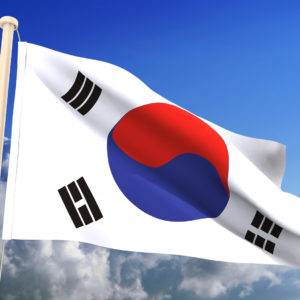Can we be sure South Korea’s relations with Japan are improving under the newly installed conservative government? The answer is we can’t be sure of anything. We can only hope the two countries can work together in the context of trilateral cooperation.
The common denominator of the arrangement is the United States, which has separate historical alliances forged in blood with both countries. No one should have any illusions about an actual trilateral alliance.
You can’t blame Koreans for hating the idea. The Japanese not only colonized Korea — forcing people to learn their language, adopt their names and bow to their emperor — but also took over farmland, barred Koreans from many types of business, and imprisoned, tortured and executed dissidents.
Oh, and then there are those other long-running, irreconcilable issues, beginning with that of the thousands of Korean girls forced to serve as “comfort women” (sex slaves) for the Japanese.
The practice wasn’t just a wartime phenomenon. It began before the war when many girls were offered jobs thinking they would serve as waitresses or housekeepers, only to discover the Japanese had other ideas.
We’ve had no end of apologies from the Japanese. I saw and heard Junichiro Koizumi, their prime minister two decades ago, bow and say how sorry he was about the past during a visit to the former Seodaemun prison, now a historical site with graphic displays of the ways in which the Japanese brutalized Koreans. Japanese leaders, after apologizing, somehow provoke demands for still more apologies.
No end of apologizing will heal the wounds of the colonial era. How can mere words redress the suffering and humiliation of thousands of comfort women? All but a few of them are long since gone.
And who believes Korean and Japanese scholars will ever agree on the texts of history books for students in both countries? It would be unrealistic to imagine that Koreans and Japanese, officially or personally, can come to terms with those and other hyper-sensitive issues.
Still, it should be possible to look ahead as President Yoon Suk-yeol is trying to do. It’s not clear how he hopes to get around profound differences, but at least he’s able to recognize the need to work with the Japanese against a common menace in the form of North Korea’s undying drive to impose its rule over the entire Korean Peninsula by flaunting its nukes and missiles.
No, Kim Jong-un is not so foolish as to dream of invading the South as his grandfather did 72 years ago, but his strategy is obvious. He thinks that by staging periodic missile tests and possibly a seventh nuclear test, he can get politicians and diplomats running around looking for dialogue and compromise, maybe in the form of relief from sanctions.
Ultimately, Kim dreams of persuading the United States and South Korea to give up their military alliance, with the U.S. finally withdrawing its forces.
President Yoon, looking to improve relations with Japan, has already rejected the appeasement policy of his predecessor, Moon Jae-in. Moon, no doubt, had the best of intentions. He believed that if he could maintain the dialogue that began amid such optimism with his three summits with Kim four years ago, he could bring about a rapprochement with the North.
Hopes were high after the American president, Donald Trump, was loving it up with Kim during their first summit in Singapore four years ago, on June 12, 2018.
Since that halcyon period, Kim Jong-un has made amply clear he’s not going to follow through on anything, notably the pledge he and Trump signed for “complete denuclearization” of the Korean Peninsula. Not even the pandemic, for which North Korea was totally unprepared, will bring him to his senses.
Under the circumstances, it’s vital for South Korea and Japan to set aside historical grievances. That’s not to say Koreans should forget the iniquities of the colonial era. For mutual survival against a common foe, however, they have to recognize the benefits of military cooperation if not alliance.
It’s not just North Korea that South Korea needs to worry about. The North is backed up by two of the world’s biggest, most authoritarian, aggressive powers, China and Russia, both eager to expand their influence in the region.
South Korea and Japan have too much at stake, too much in common, to let the tragedy of the past jeopardize the promise of the future.

